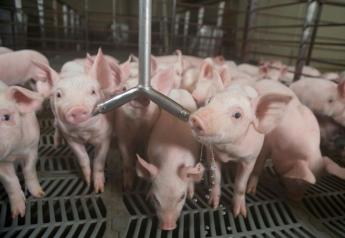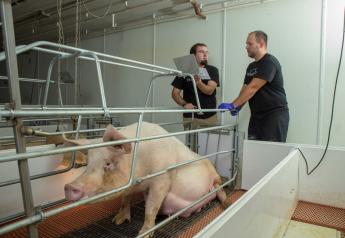Meat of the Matter: Regulatory Row

Last week, USDA announced that implementation of an Obama administration rule designed to give farmer-producers greater leverage in legal actions with agri-business companies that exercise vertical control in animal agriculture sectors will be delayed for six months.
First, a little background:
In 2010, USDA proposed rules governing “Poultry Grower Ranking Systems” and “Unfair Practices and Undue Preference in Violation of the Packers and Stockyards Act.” Although a final rule was published in the Federal Register following numerous public hearings, it was never implemented because Republicans in Congress withheld funding for rule enforcement in subsequent appropriations bills.
The new rules proposed to clarify the meaning of the relevant sections of the P&SA that prohibit “unfair, unjustly discriminatory, or deceptive practice or device; any undue or unreasonable preference or advantage;” or “any undue or unreasonable prejudice or disadvantage.”
Previously, the federal courts had determined that under the interpretation of the original regulations, plaintiffs had to demonstrate that the actions of the defendants — corporate packer-processors — caused harm to the broad industry, that the “unfair actions” being litigated must be shown to have adverse effects on overall competition.
The new rules that were ready to be implemented simply described the actions that would be prohibited as “unfair, unjust, and unreasonable.” In other words, the standard would extend beyond just anticompetitive activity. Litigants would no longer have to demonstrate antitrust impact.
Chickening Out?
Although the new rules were finally set to be issued, the Trump administration delayed things for 180 days, eventually citing the Inauguration Day order from the president to all executive branch department heads titled the “Regulatory Freeze Pending Review.”
Advocacy groups quickly linked the delay to the selection (and now confirmation) of Sonny Perdue III, the former governor of the major poultry-producing state of Georgia, as the new Secretary of Agriculture.
For example, the Rural Advancement Foundation International-USA issued a statement by its program director Sally Lee that noted, “This decision poses a real threat to independent livestock and poultry businesses … [and] ignores the voices of American farmers, who risked retaliation to show their clear and strong support for these rules. This delay indicates that the administration is putting lobbyists and special interests first.”
Industry spokespeople countered that the rules were unnecessary.
National Chicken Council President Mike Brown said in the organization’s statement, calling the rule “an arbitrary and capricious abuse of federal regulatory authority.”
Barry Carpenter, president and chief executive of the North American Meat Institute, said in a statement that, “We are confident the new Secretary of Agriculture … will recognize what a disaster this rule is for producers, meat packers and processors, retailers and consumers.”
Tom Hayes, Tyson Foods CEO, told Bloomberg that “We don’t feel like we need the help with our growers to have a good relationship.”
Of course not. No company on the planet “needs the help” of government regulations to manage their business. But that’s not the point.
These proposed rules are decidedly not arbitrary and capricious. After nearly seven years, multiple public hearings and a rulemaking process that solicited extensive comments from all stakeholders involved, there is nothing capricious about any of the proposed rules.
Nor is it clear that rules tipping the balance somewhat back toward the poultry growers, rather than the companies that currently hold virtually all the power in a vertically integrated system—the grower assumes virtually all of the risk — hardly qualifies as a “disaster” for consumers.
However, there is a backdrop to all the posturing that is a potential disaster, a threatened action that is arbitrary and capricious.
In its initial budget, the Trump administration has proposed a 21% budget cut for USDA.
That would be a disaster for industry and consumers alike.
Beyond regulatory battles, beyond rulemaking that is either unnecessary (according to industry) or sorely overdue (according to farmer advocacy groups), slashing USDA’s budget would be guaranteed to harm rural America, the very communities whose citizens were instrumental in getting Donald Trump elected president.
Set aside the very real impact of loss of farm support programs, severe budget cuts would impact USDA programs that support disaster relief, agricultural research, conservation initiatives, rural economic development and export and trade promotion.
Every one of those areas is vital to the nation, and more importantly, to the millions of people residing in farm country and dependent on a viable agricultural sector to maintain their livelihoods and their communities’ viability.
USDA’s proposed regulatory rules need to be finalized, hopefully on the basis of a reasonable compromise.
But the bigger issue here is that the nation’s food supply and its agricultural infrastructure are far too important for USDA to be subjected to massive budget cuts.
That’s where the real farm fight needs to take place.
Editor’s Note: The opinions in this commentary are those of Dan Murphy, a veteran journalist and commentator.







